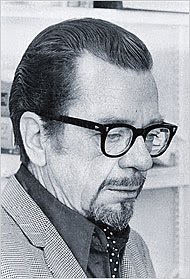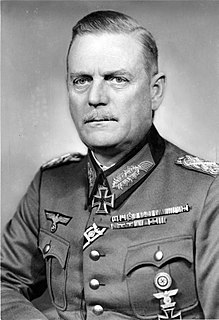A Quote by Daniel Kahneman
We were required to predict a soldier's performance in officer training and in combat, but we did so by evaluating his behavior over one hour in an artificial situation. This was a perfect instance of a general rule that I call WYSIATI, "What you see is all there is." We had made up a story from the little we knew but had no way to allow for what we did not know about the individual's future, which was almost everything that would actually matter. When you know as little as we did, you should not make extreme predictions like "He will be a star."
Quote Topics
About
Actually
Allow
Almost
Almost Everything
Artificial
Behavior
Call
Combat
Did
Everything
Extreme
Future
General
Had
His
Hour
Individual
Instance
Knew
Know
Like
Little
Made
Make
Matter
Officer
One Hour
Over
Perfect
Performance
Predict
Predictions
Required
Rule
See
Should
Situation
Soldier
Star
Story
Training
Up
Way
Were
Which
Will
Would
Related Quotes
Jem’s eyes had widened, and then he’d laughed, a soft laugh. “Did you think I did not know you had a secret?” he’d said. “Did you think I walked into my friendship with you with my eyes shut? I did not know the nature of the burden you carried. But I knew there was a burden.” He’d stood up. “I knew you thought yourself poison to all those around you,” he’d added. “I knew you thought there to be some corruptive force about you that would break me. I meant to show you that I would not break, that love was not so fragile. Did I do that?
But why had he always felt so strongly the magnetic pull of home, why had he thought so much about it and remembered it with such blazing accuracy, if it did not matter, and if this little town, and the immortal hills around it, was not the only home he had on earth? He did not know. All that he knew was that the years flow by like water, and that one day men come home again.
We should realize that, if [Socrates] demanded that the wisest men should rule, he clearly stressed that he did not mean the learned men; in fact, he was skeptical of all professional learnedness, whether it was that of the philosophers or of the learned men of his own generation, the Sophists. The wisdom he meant was of a different kind. It was simply the realization: how little do I know! Those who did not know this, he taught, knew nothing at all. This is the true scientific spirit.
I haven't talked to [Sterling Simm] personally about the situation. We did a couple retweets to make some noise and get a little feedback, but I would definitely consider it. When we had our session for the "All I Know" collaboration he played me a number of records, one being "All These", that were crazy.
When I had finished the book I knew that no matter what Scott did, nor how he behaved, I must know it was like a sickness and be of any help I could to him and try to be a good friend. He had many good, good friends, more than anyone I knew. But I enlisted as one more, whether I could be of any use to him or not. If he could write a book as fine as The Great Gatsby I was sure that he could write an even better one. I did not know Zelda yet, and so I did not know the terrible odds that were against him. But we were to find them out soon enough.
You didn't have to take a punch for me, you know,' he said. 'I'm a lover, not a fighter.' 'You're a freak is what you are,' I said. He stuck out his hand. 'Come on, slugger. Walk with me. You know you want to.' And the thing was, despite everything I knew-that it was a mistake, that he was different from the others-I did. How he knew that, I had no idea. But I got up and did it anyway.
Dear Willem: I’ve been trying to forget about you and our day in Paris for nine months now, but as you can see, it’s not going all that well. I guess more than anything, I want to know, did you just leave? If you did, it’s okay. I mean it’s not, but if I can know the truth, I can get over it. And if you didn’t leave, I don’t know what to say. Except I’m sorry that I did. I don’t know what your response will be at getting this letter, like a ghost from your past. But no matter what happened, I hope you’re okay.
Did you dream of me?" he asked. "Yes," she admitted grudgingly. She had. She'd dreamed of his hands caressing her, of his mouth devouring her. His lush lips inched into a surprised but pleased smile. "You were naked," she told him. His grin spread; his eyes gleamed with satisfaction. "And tied up..." He arched his eye brows in smug expectation. "I did not know the idea of bondage would please you." "Oh, I love the idea of typing you up." She paused dramatically. "Just like in my dream, you'll be secured to an ant-hill and the little things will eat you alive.





































